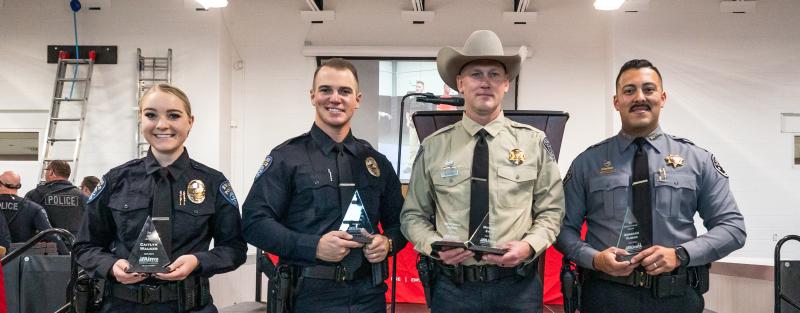Police Studies Associate of Applied Science (A.A.S.) Requirements
The Police Studies associate degree at Aims is designed to extend your foundational Peace Officer Academy training with advanced coursework in criminal justice, public safety, leadership and communication.
Please note: Enrollment in the Police Studies A.A.S. program is at the discretion of the Peace Officer Academy Director.
This degree supports your development as a well-rounded law enforcement professional by providing a broader academic perspective on policing, legal systems and community engagement. Coursework builds on your POST-aligned training and prepares you for long-term career advancement or continued education in criminal justice or public safety administration. Explore the course requirements to see how this degree can strengthen your future in law enforcement.
You’ll also choose from a variety of elective courses that allow you to tailor your degree to your interests and career goals. Electives may include:
- Forensic science
- Delinquent behavior
- Victimology
- Criminal profiling
- Forensic anthropology
- General and abnormal psychology
- Sociology
In addition to criminal justice coursework, general education classes help you develop essential communication, critical thinking and problem-solving skills—qualities valued by law enforcement agencies and public service organizations.
How to Apply to the Aims Police Studies Associate Degree Program
Notice: Enrollment in the Police Studies AAS degree program is at the discretion of the Peace Officer Academy Director. The Aims Peace Officer Academy is currently enrolling sponsored cadets only—individuals hired or endorsed by a law enforcement agency.
